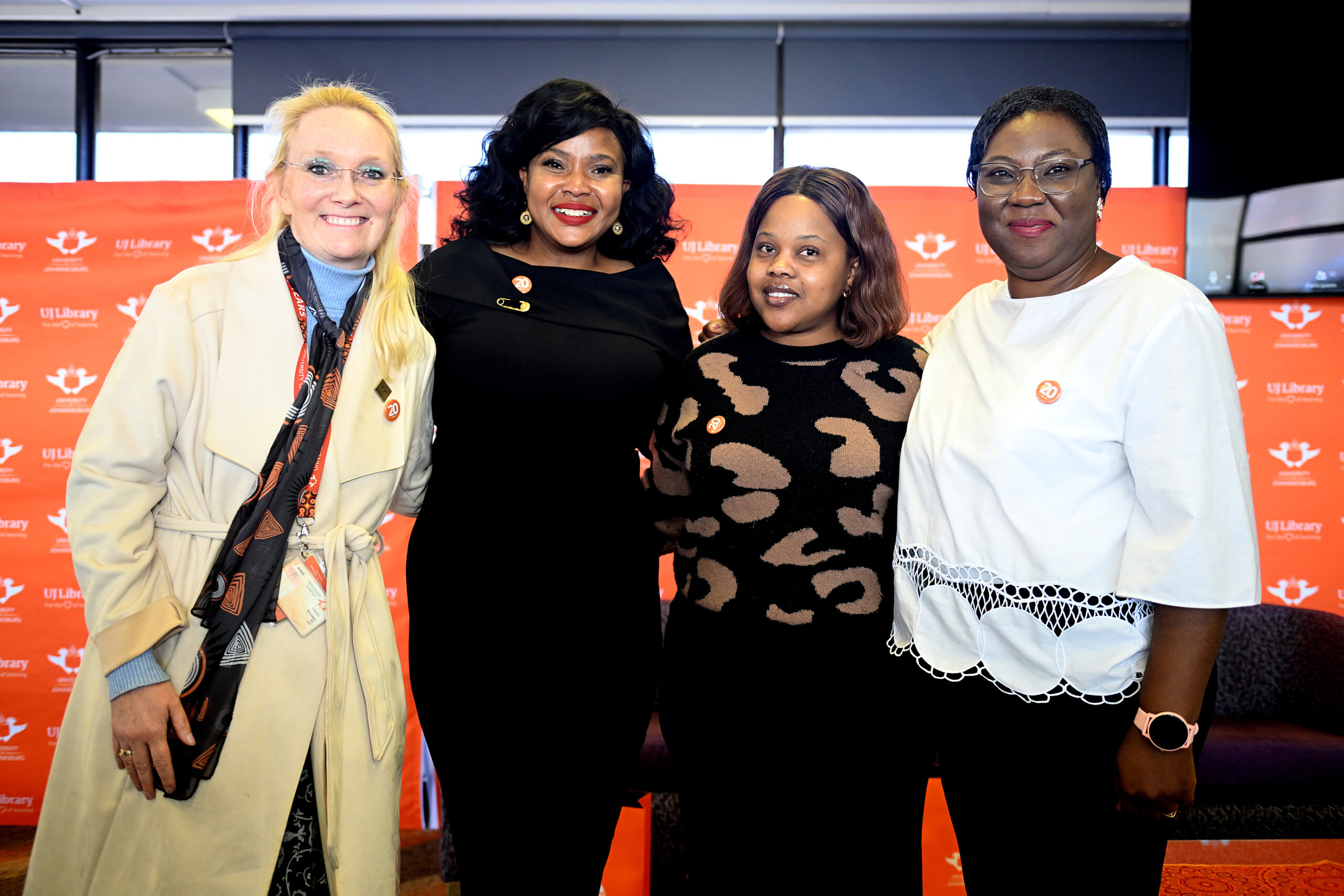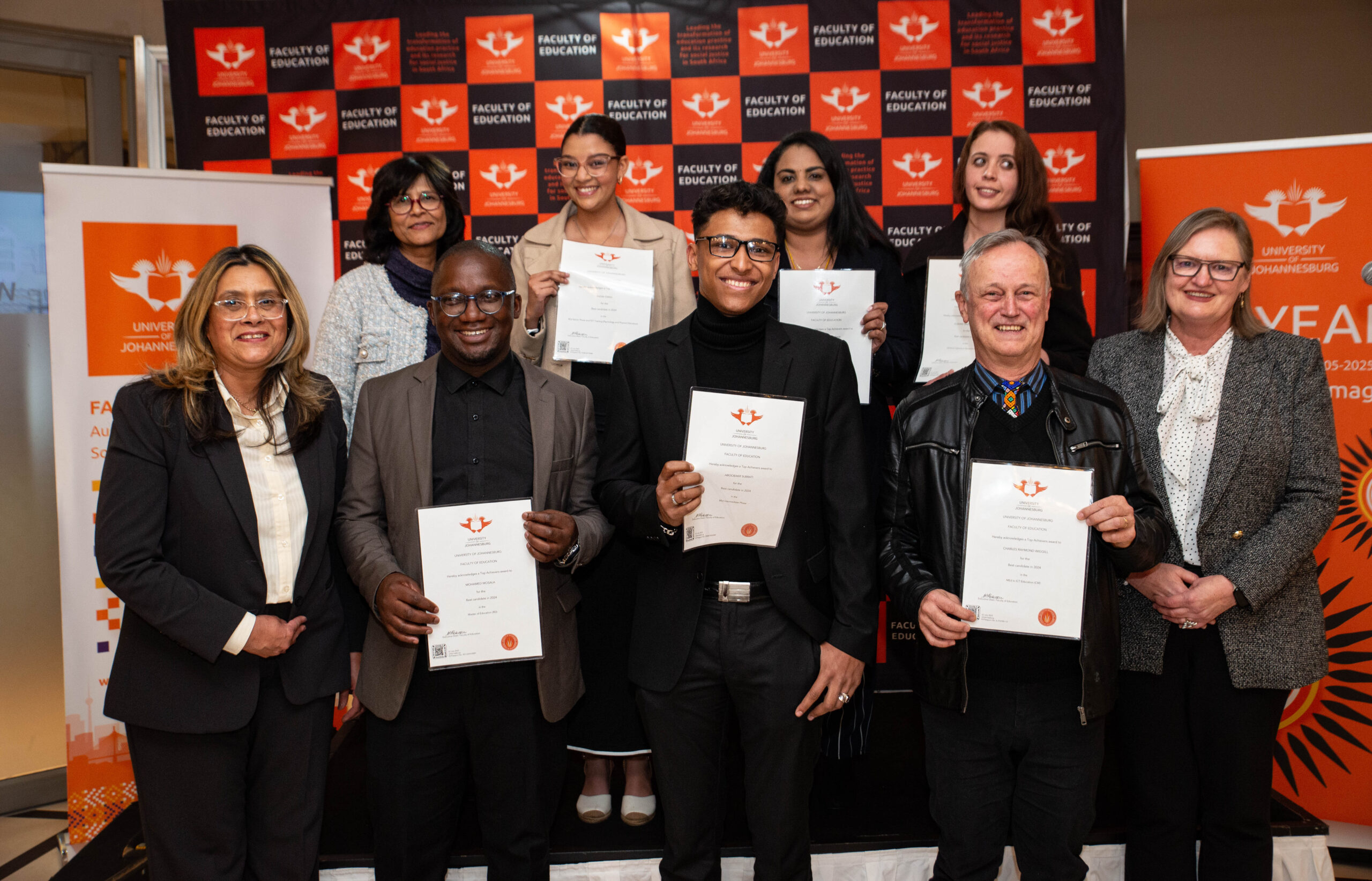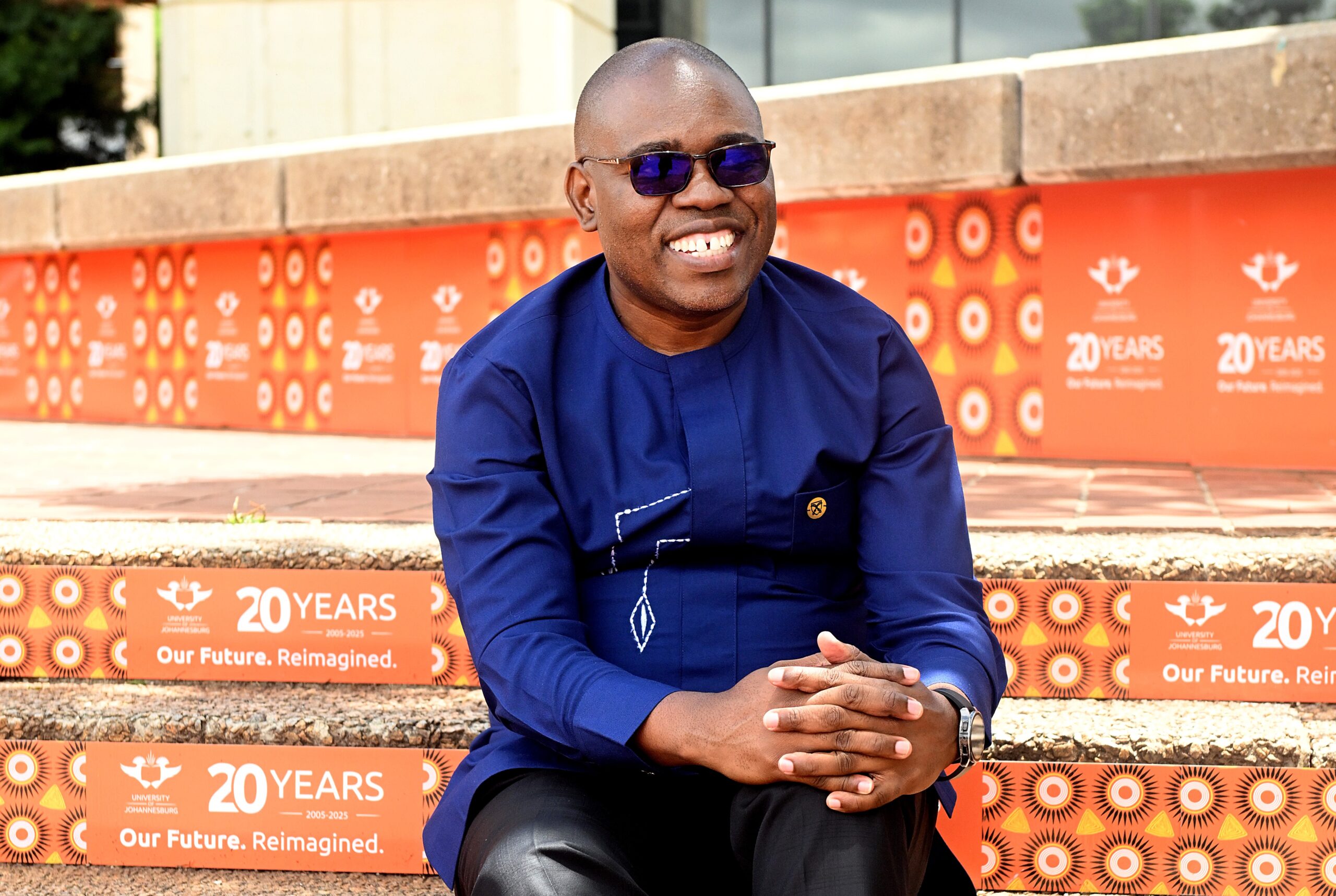One of the biggest markers of an institution of higher education’s reach is the success of its alumni.
In line with the celebrations of 2025 as the 20th anniversary of the University of Johannesburg (UJ), the Law Faculty hosted its alumni roundtable discussion to celebrate 20 years of making meaningful contributions in the law fraternity.
Hosted at the Ubuntu Chambers on the University’s Auckland Park Kingsway Campus, the hybrid event attracted over 130 UJ Law alumni, staff and friends of the faculty who all came around the proverbial bonfire to share their stories of heartache, success and defending the rights of the disadvantaged as legal practitioners.
The discussion which covered a variety of topics including the role of pro bono work in accessing justice, challenges faced by marginalised communities in the legal system and how alumni can leverage legal skills in entrepreneurship while maintaining ethics was hosted by the charismatic Elton Hart, an admitted attorney of the high court, a lecturer in procedural and criminal law as well as the manager of the UJ Law clinics.
Acting executive dean of the Faculty, Professor Kathleen van der Linde, said the faculty was thrilled to host an engagement that not only celebrates the progress of the alumni but also tackles meaningful and impactful topics.
“It’s my absolute pleasure and privilege to welcome you to this engagement. Tonight, we come together to celebrate not only a milestone in the university but also the enduring impact of the Faculty of Law and its alumni over the past two decades. This is a dedicated celebration of our law alumni and the powerful footprints that they are leaving in legal, business and social spaces. We hope that this tradition will grow in both strength and spirit, and that it will create a space where different generations of UJ Law graduates can connect, collaborate and reflect,” she said.
Following her opening remarks, the panel began by tackling the topics, sharing their varied perspectives and novel ideas.
Hart kicked off the discussion about access to justice, sharing his own experiences as the legal practitioner at the helm of the UJ Law clinics.
“Over the years, being in the law clinic, I have seen things happen. And I have often wondered, does access to justice exist? I am an older generation attorney, and if I am still grappling with this idea, surely you guys are also still grappling with it. Yes, we have courts all over the country, we see court cases happen, and people making use of pro bono legal services. Is that access to justice? Does it speak sufficiently to sections 34 and 3,5, right? Is the country where it needs to be in terms of guaranteeing access to justice?” he quizzed.
In response, Advocate Muhammed Coovadia began his response by explaining what the phrase access to justice entails; “Mr Hart I think you raise an important point. It is not about having a courtroom located in a rural area, but rather what happens inside the courtroom.”
Coovadia shared an experience of a case where the judge did not agree with the reasons for a case being brought to the urgent court, and thus, the case was struck off the roll. It is here where he quizzed if matters that had to do with the lives and livelihoods of individuals could be struck off the roll, how then could the ordinary South Africans access justice?
Adv Gift Xaba, senior advocate at the pro bono and human rights division of Cliff Dekker and Hofmeyer, a legal firm, shared that he believed that people who could access the services of firms such as theirs are privileged.
“These are privileged people because at least they were able to access the information about what options are available to them, and that they have taken the set to get our assistance. One of the key factors to access to justice for me, is the issue of legal education, which is fundamental. Although we’ve come a long way in working to provide access to the courts and, by extension,n justice, there’s a long way to go in bridging the gap between the law as we know it as legal practitioners and the people on the ground. This speaks to access to information. This for me is the biggest hindrance in ordinary people accessing justice,” he said.
Watch the full discussion here:



